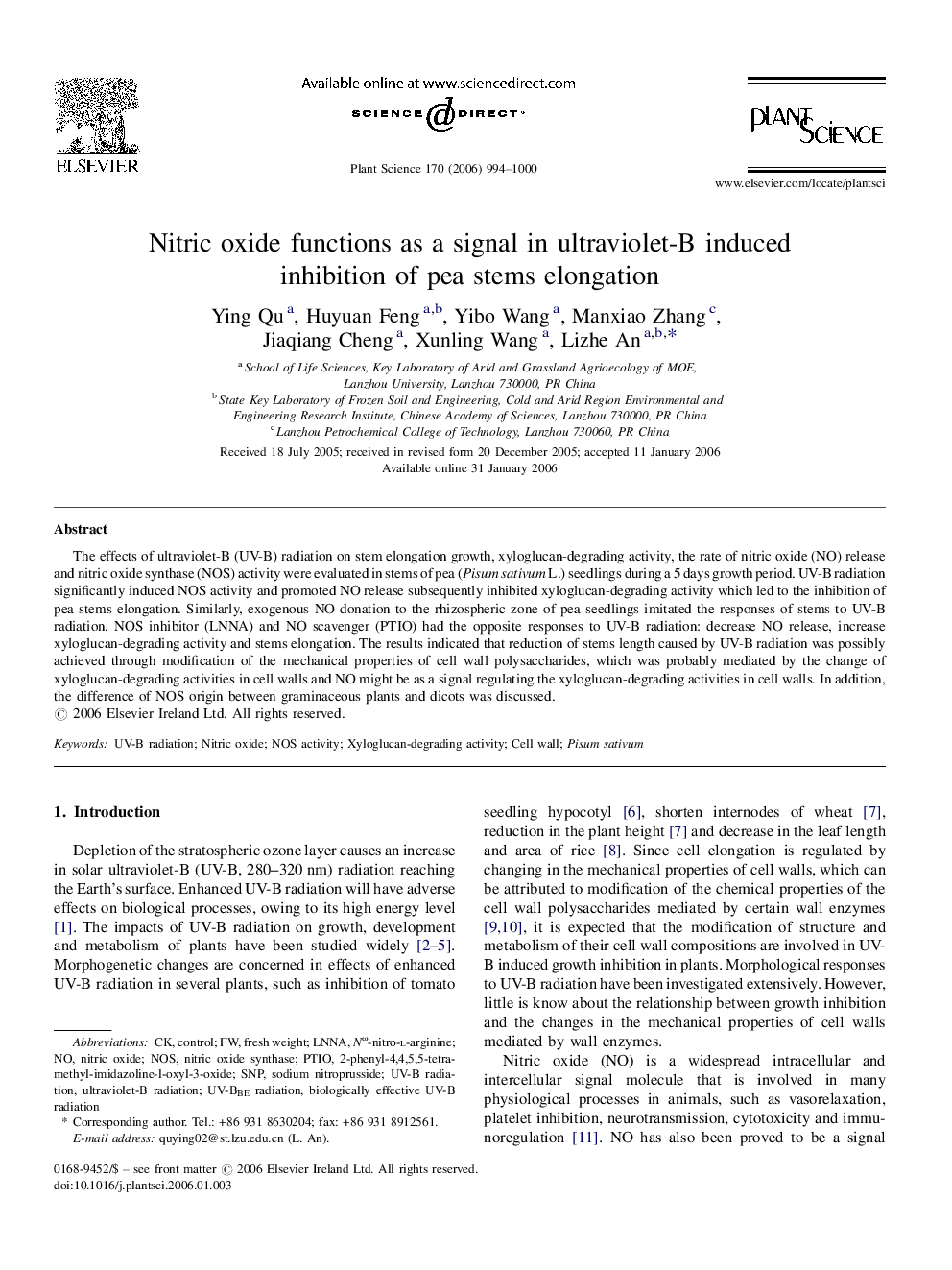| Article ID | Journal | Published Year | Pages | File Type |
|---|---|---|---|---|
| 2018311 | Plant Science | 2006 | 7 Pages |
Abstract
The effects of ultraviolet-B (UV-B) radiation on stem elongation growth, xyloglucan-degrading activity, the rate of nitric oxide (NO) release and nitric oxide synthase (NOS) activity were evaluated in stems of pea (Pisum sativum L.) seedlings during a 5 days growth period. UV-B radiation significantly induced NOS activity and promoted NO release subsequently inhibited xyloglucan-degrading activity which led to the inhibition of pea stems elongation. Similarly, exogenous NO donation to the rhizospheric zone of pea seedlings imitated the responses of stems to UV-B radiation. NOS inhibitor (LNNA) and NO scavenger (PTIO) had the opposite responses to UV-B radiation: decrease NO release, increase xyloglucan-degrading activity and stems elongation. The results indicated that reduction of stems length caused by UV-B radiation was possibly achieved through modification of the mechanical properties of cell wall polysaccharides, which was probably mediated by the change of xyloglucan-degrading activities in cell walls and NO might be as a signal regulating the xyloglucan-degrading activities in cell walls. In addition, the difference of NOS origin between graminaceous plants and dicots was discussed.
Keywords
Related Topics
Life Sciences
Agricultural and Biological Sciences
Plant Science
Authors
Ying Qu, Huyuan Feng, Yibo Wang, Manxiao Zhang, Jiaqiang Cheng, Xunling Wang, Lizhe An,
